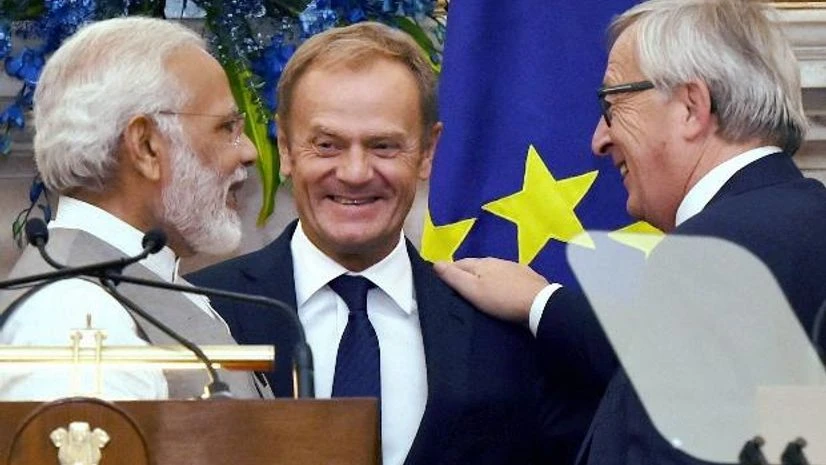India and the European Union (EU) today emphasised that connectivity initiatives must be based on universally recognised international norms, transparency and equality, seen as an apparent reference to China's OBOR project.
Prime Minister Narendra Modi after a meeting with Donald Tusk, the president of the European Council, and Jean Claude Juncker, the president of the European Commission also underlined the importance of freedom of navigation, overflight and peaceful resolution of disputes, in accordance with the universally recognised principles of international law.
This is also being seen as an oblique reference to China's assertiveness in the hydrocarbon rich South China Sea.
More From This Section
"They underlined that connectivity initiatives must be based on universally recognised international norms, good governance, rule of law, openness, transparency and equality and must follow principles of financial responsibility, accountable debt financing practices, balanced ecological and environmental protection, preservation standards and social sustainability," it said.
India has flagged its opposition to the One Belt One Road (OBOR) initiative of China, stating that it crosses the disputed territory of Pakistan Occupied Kashmir (PoK).
(Only the headline and picture of this report may have been reworked by the Business Standard staff; the rest of the content is auto-generated from a syndicated feed.)

)
